Are Fitness Trackers Really Accurate?
Have you ever wondered just how precise those fitness trackers on your wrist really are? Well, I’ve got some insights for you! Let’s dive in and explore the accuracy of these nifty gadgets.
First off, let me tell you, my friend, that these trackers are pretty darn handy. They can provide you with useful information about your daily physical activities, heart rate, sleep patterns, and even give you a gentle nudge when you’ve been sitting for too long. But when it comes to accuracy, things can get a bit hazy.
Here’s the deal: most fitness trackers use a combination of sensors, algorithms, and fancy math to monitor your movements and estimate the number of steps you take, calories burned, and distance traveled. But, and this is a big but, accuracy can vary from one device to another.
Why is that, you ask? Well, it all comes down to the different types of sensors these trackers employ. Some use accelerometers to measure your movements, while others also include additional sensors like gyroscopes or altimeters for increased accuracy. So, depending on the make and model, the accuracy of your fitness tracker can fluctuate.
Generally speaking, fitness trackers are pretty good at counting steps and giving you a rough idea of your daily activity level. But if you’re looking for precise data, you might want to take those numbers with a grain of salt.
Take heart rate monitoring, for example. Most trackers use optical sensors that detect blood flow beneath your skin to estimate your heart rate. While this can give you a decent ballpark figure, it’s not as accurate as the chest strap monitors used in professional settings.
But fear not! Fitness trackers are not all doom and gloom when it comes to accuracy. They may not be perfect, but they can still be helpful tools to track your progress and motivate you to stay active.
The key here, my friend, is to use your fitness tracker as a guide rather than a definitive authority. Pay attention to trends and changes in the data it provides and let it inspire you to keep pushing forward on your fitness journey.
In conclusion, while most fitness trackers do a decent job of giving you an overall idea of your activity levels, you shouldn’t rely on them for precise measurements. Embrace them as companions on your fitness quest, but remember to listen to your body and enjoy the journey!
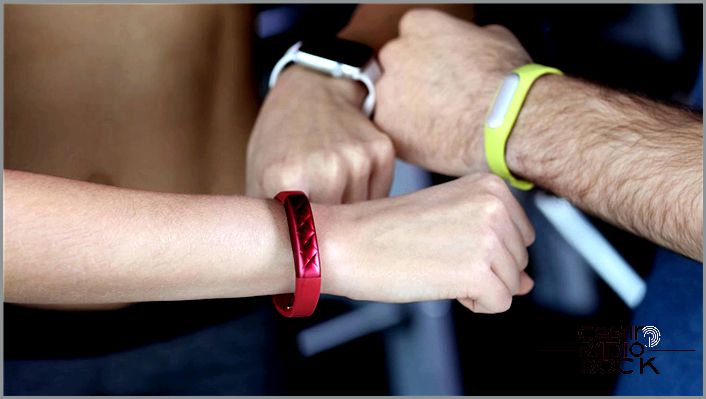
Whether you’re an athlete or just want to stay healthy, fitness trackers are great gadgets that can help you keep track of your daily physical activities. They claim to measure your heart rate, steps, sleep quality, and even calories burned. But can you trust these trackers?
In this article, I’ll explain how fitness trackers work and how accurate they are. I’ll also recommend some of the best and most reliable fitness trackers available in 2022.
How Do Fitness Trackers Work?
Fitness trackers are small devices that you wear on your wrist to measure various fitness-related metrics. They’re designed for athletes and anyone looking to improve their health through physical activity. These trackers can estimate distance, calories burned, heart rate, sleep quality, and more. Some can even count swimming laps. They help you keep track of your health, provide insights and reports, and motivate you to exercise regularly.
Fitness trackers are useful for monitoring your progress. For example, if your goal is to take 10,000 steps a day, your tracker can let you know how many more steps you need to reach your target. You can also use it to track how much water you drink daily.
When you set up your fitness tracker, you need to enter certain information about yourself, like age, gender, height, and weight. The more details you provide, the more accurate the device will be. You also need to set your goals, such as step count or calorie burn.
Fitness trackers use built-in sensors to measure different parameters. They have accelerometers that track your body movements in all directions. You can specify the type of activity you’re doing, like walking or jogging, so the tracker doesn’t get confused. The sensors can measure duration, intensity, frequency, and acceleration of your movements.
To measure your heart rate, fitness trackers use green LED light sensors. Blood can absorb green light, so the trackers estimate your heart rate based on that. They also use accelerometers to detect when you’re sleeping. These sensors can tell when your body is still for a long time, indicating sleep.
Keep in mind that fitness trackers can’t estimate everything, so you need to manually enter some information. For example, if you want to track calories burned, you need to input your food intake on the smartphone app linked to the tracker. The app provides more detailed information and statistics.
Should You Rely on Fitness Trackers?
Now let’s talk about how accurate fitness trackers really are. They are extremely useful, but their accuracy depends on several factors.
The number and types of sensors in a fitness tracker affect its accuracy. High-quality trackers have more sensors, which collect more information and provide more accurate reports. The accuracy also depends on the data you provide about your metabolism.
For certain metrics, fitness trackers provide reliable results. But for others, it may be better to use other methods or devices. Let’s take a closer look.
Sleep
When it comes to measuring your sleep, fitness trackers may not always be accurate. They use accelerometers to monitor how long you sleep, but they can mistake resting for sleep. For truly accurate sleep measurement, trackers would need to monitor brainwaves or eye movement, which is currently not possible.
Steps
Fitness trackers can measure your step count fairly accurately with motion sensors. However, the reports are more reliable when you’re walking at a faster pace. For people who use walking sticks, the travel distance may not be as accurate. Movement around the hip area is best measured, so putting your mobile device in your pocket gives more accurate results than a wrist tracker. To improve accuracy, wear the tracker on your non-dominant hand.
Heart Rate
Fitness trackers can measure heart rate using optical sensors, which are relatively accurate. However, they are most accurate when you’re not moving. During intense physical activity, the heart rate reports may not be accurate. Also, if your skin has more melatonin, it can affect the accuracy of the green light absorption. Use the heart rate monitor for average rates over a long period of time.
Calories Burned
Measuring daily calorie burn depends on many factors, so fitness trackers may not provide the best results. Some models only measure calories burned during workouts, while others estimate throughout the day. Fitness trackers also don’t consider your fitness level. People who are less active burn fewer calories during exercises than those who exercise regularly. Additionally, hormone levels like testosterone can affect calorie burn rate. Therefore, be cautious when relying on calorie counts from fitness trackers.
The Best Fitness Trackers
The accuracy of your fitness tracker depends on the data you provide and the model you choose. High-quality models can provide reliable reports to help you stay active and motivated.
Here are some of the best fitness trackers known for their reliability:
Fitbit Charge 4
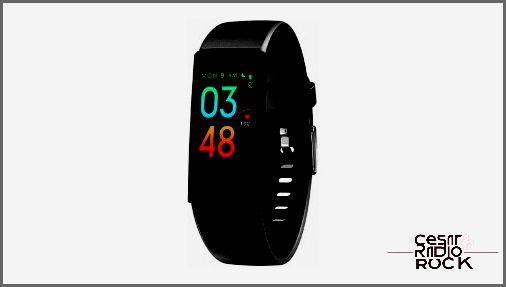
Hey there! With the Fitbit Charge 4, you can keep track of your heart rate, sleep, and body temperature. It’s pretty awesome because it’s waterproof, which means you don’t have to take it off when you go swimming or take a shower. Plus, it has a special feature for monitoring your heart rate during different workouts, like running or biking. It can also count your steps, measure how far you’ve walked, and even calculate the calories you’ve burned. You have three options for monitoring your heartbeats: you can see them in real-time, have the tracker monitor your heart rate 24/7, or use it specifically for your workouts.
One of the coolest things about this fitness tracker is its super long battery life – it can last up to 504 hours! That means you won’t have to worry about constantly charging it. The Fitbit Charge 4 also has a really simple interface, so it’s super easy to use. And with Bluetooth 5 technology, you can easily connect the tracker to your phone and use the WoFit app.
Here are the pros of the Fitbit Charge 4:
- It has a battery life of 504 hours.
- It’s waterproof.
- There are six different workout modes.
- It has heart rate and temperature monitoring technology.
- It has Bluetooth 5 connectivity.
And here are the cons:
- The display is only in black and white.
- The interface is pretty basic.
Now, let’s talk about the Apple Watch Series 7.
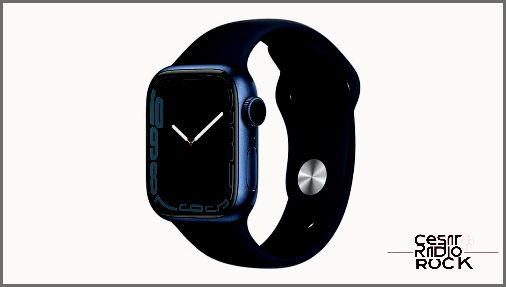
If you’re in the market for a top-notch smartwatch that also functions as a fitness tracker, the Apple Watch Series 7 has got you covered. This incredible wearable is packed with advanced health features and even comes with built-in GPS. With the Apple Watch Series 7, you can easily keep track of your daily activity, monitor your sleep patterns, and measure your blood oxygen levels. It offers a total of 14 different workout modes, including options for running, cycling, swimming, and more. And if that’s not enough, you can even add new workout modes through the smartphone app.
But that’s not all—the Apple Watch Series 7 boasts a large OLED display that is incredibly durable, resistant to dust and water, and highly resistant to cracks. In fact, the display is a whopping 20% bigger than its predecessor, the Series 6. You can effortlessly connect the Apple Watch Series 7 to all your Apple devices, and it even offers a family setup option, making it easy for everyone in your household to enjoy its features. However, it’s worth noting that, like all Apple devices, the Apple Watch Series 7 does have a slightly shorter battery life, lasting only 18 hours.
Now, let’s take a look at the pros and cons of the Apple Watch Series 7:
Pros:
– It comes with built-in GPS, allowing you to easily track your location during workouts or outdoor activities.
– The Apple Watch Series 7 offers some of the most advanced health features on the market, making it a great companion for anyone looking to prioritize their well-being.
– With its large OLED display, you’ll be treated to a clear, vibrant view of all your stats and notifications.
– The family setup option is a fantastic feature, enabling multiple users to enjoy the benefits of the Apple Watch Series 7.
– Instant connectivity ensures seamless integration with all your Apple devices, making it easy to access your apps, messages, and more on the go.
Cons:
– The Apple Watch Series 7 does have a relatively short battery life compared to some other smartwatches, lasting only around 18 hours.
– It’s important to note that the Apple Watch Series 7 is a premium device, and accordingly, it comes with a higher price tag.
And now, let’s move on to another popular fitness tracker: the Fitbit Inspire 2.
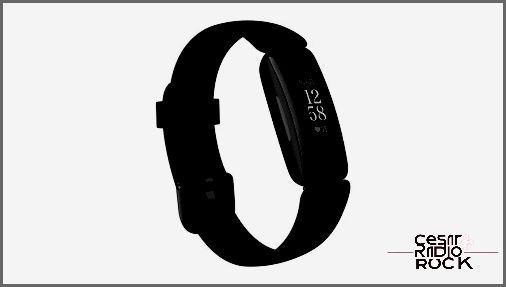
When it comes to fitness trackers, the Fitbit Inspire 2 stands out with its sleek and modern design. I find it really comfortable to wear on my wrist. Plus, it’s perfect for beginners who are new to fitness trackers. The interface is user-friendly and easy to navigate, making it a great choice for anyone starting their fitness journey.
This device goes beyond just tracking your steps. It also continuously monitors your heart rate throughout the day, providing you with valuable insights about your health. And with its all-day tracking tools, you can keep tabs on your activity levels and progress. The best part? The Fitbit Inspire 2 has an impressive 10-day battery life, so you don’t have to worry about charging it every day. It’s perfect for traveling or simply being on the go.
Another great feature of the Fitbit Inspire 2 is its waterproof design. You can confidently wear it while swimming or during any water-related activities without any concerns. It’s truly a versatile companion to have.
Once you connect the Fitbit Inspire 2 to its mobile app, you’ll unlock even more possibilities for your fitness journey. You’ll have the option to subscribe to a free, one-year premium trial, giving you access to additional tools and features. The app offers convenient step-by-step fitness programs to help you reach your goals.
Considering all the amazing features it offers, the Fitbit Inspire 2 is surprisingly affordable. It provides everything you need for effective fitness tracking without breaking the bank.
Pros:
- Sleek and modern design
- Impressive 10-day battery life
- Affordable
- Free one-year premium trial
- All-day activity tracking
Cons:
- Small display
- No on-board GPS
Garmin Vivoactive 4
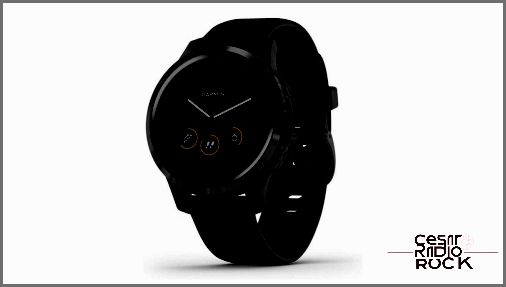
The Garmin Vivoactive 4 is an impressive fusion of a smartwatch and fitness tracker. It allows you to keep tabs on your energy levels, heart rate, sleep, stress, menstrual cycles, and more. With its classic round watch design, it’s perfect for those who prefer a more traditional look over the slender bracelets of other fitness trackers. Its battery can keep up with you for an impressive eight days, or six days if you’re using music and GPS.
But that’s not all this smartwatch has to offer. It can sync up with popular music apps like Spotify, Deezer, and Amazon Music, giving you the freedom to connect it to your Bluetooth headphones and enjoy your tunes wirelessly. Plus, it can connect to over 20 preloaded GPS and indoor sports apps, making it a versatile companion for your workouts. And let’s not forget about its safety and tracking features, which add an extra layer of security.
Now, let’s talk about the pros of the Garmin Vivoactive 4:
- Classic round design that’s timeless
- Syncs with various popular music apps
- Offers safety and tracking functions
- Allows for underwater optical heart rate monitoring
And, of course, every product has its cons. Moving on to the Xiaomi Mi Smart Band 6:
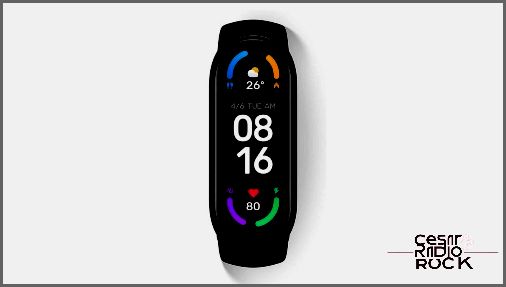
If you’re on the lookout for an affordable fitness tracker that gives you accurate results, the Xiaomi Mi Smart Band 6 is perfect. With a two-week battery life and a water-resistant 1.56″ AMOLED glass display, it’s both long-lasting and durable. And the best part? It’s so comfortable to wear that you’ll forget you have it on.
This fitness tracker has a wide range of features, offering 30 different activities to track. It’s compatible with both iOS 10+ and Android 5+, making it versatile for all users. Some of its impressive tracking tools include an SpO2 oxygen sensor, a 24-hour heart rate monitor, sleep analysis, breathing pattern tracking, and personalized health intelligence. Plus, it’s perfect for water activities, with six different swimming styles to choose from.
Here are some pros of the Xiaomi Mi Smart Band 6:
- Long-lasting battery life of two weeks
- Water-resistant design
- Clear and vibrant 1.56-inch AMOLED glass display
- Affordable price
- Offers 30 different activities to track
But, as with any product, there are a few cons to consider:
- It only has connected GPS, so it relies on your phone
- The screen may be too small for some individuals
Make the Most of Your Fitness Tracker
Fitness trackers are incredibly useful devices that can keep track of various fitness-related metrics. While they may not be 100% accurate, they offer a range of benefits worth considering.
Ultimately, it’s important to take the results from your fitness tracker with a grain of salt. They may not be completely precise, but they are still valuable tools for monitoring progress and counting steps. Keep in mind, though, that certain parameters like sleep and energy expenditure can’t be accurately measured by these devices.
